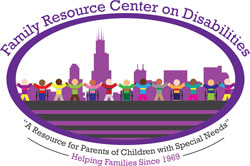Early Intervention Services and Resources
- Physical (reaching, rolling, crawling, and walking);
- Cognitive (thinking, learning, solving problems);
- Communication (talking, listening, understanding);
- Social/emotional (playing, feeling secure and happy); and
- Self-help (eating, dressing).
Examples of early intervention services
If an infant or toddler has a disability or a developmental delay in one or more of these developmental areas, that child will likely be eligible for early intervention services. Those services will be tailored to meet the child’s individual needs and may include:
- Assistive technology (devices a child might need)
- Audiology or hearing services
- Speech and language services
- Counseling and training for a family
- Medical services
- Nursing services
- Nutrition services
- Occupational therapy
- Physical therapy
- Psychological services
Services may also be provided to address the needs and priorities of the child’s family. Family-directed services are meant to help family members understand the special needs of their child and how to enhance his or her development.
Authorized by law
Early intervention is available in every state and territory of the United States. The Individuals with Disabilities Education Act (IDEA) requires it–Part C of IDEA, to be precise. That’s why you’ll sometimes hear early intervention referred to as Part C.
- Get in touch with the State system.
The State is responsible for providing early intervention programs for infants and toddlers. The agency in charge is called the lead agency. - Ask to be referred to your local area.
Call the State agency you identified above. Explain that you want to find out about early intervention services for your child. Ask for the name of the office, a contact person, and the phone number in your area where you can find out more about the program and have your child screened for a disability or delay. - Visit the State’s and/or local agency’s website.
Department of Human Services Bureau of Early Intervention
The Bureau of Early Interventions assure that families who have children ages birth to three, with diagnosed disabilities, developmental delays or substantial risk of significant delays receive resources and supports that assist them in maximizing their child’s development while respecting the diversity of families and communities.
Phone: 217-782-0516
Fax: (217) 524-6248
Ann Freiburg, Acting Part C Coordinator
Email: ann.freiburg@illinois.gov
Website: http://www.dhs.state.il.us/page.aspx?item=32009
ReferPhone: (800) 323-4769
ReferWebsite: http://www.dhs.state.il.us/page.aspx?module=12&OfficeType=4&County
- Keep track of info.
Write down the names, phone numbers, and emails you’re given (and, as you continue, everyone you talk to). You can use the Parent’s Record-Keeping Worksheet. Having this information available will be helpful to you later on.
Information taken from the Center of Parent Information and Resources Updated, March 2014 A legacy resource from NICHCY
